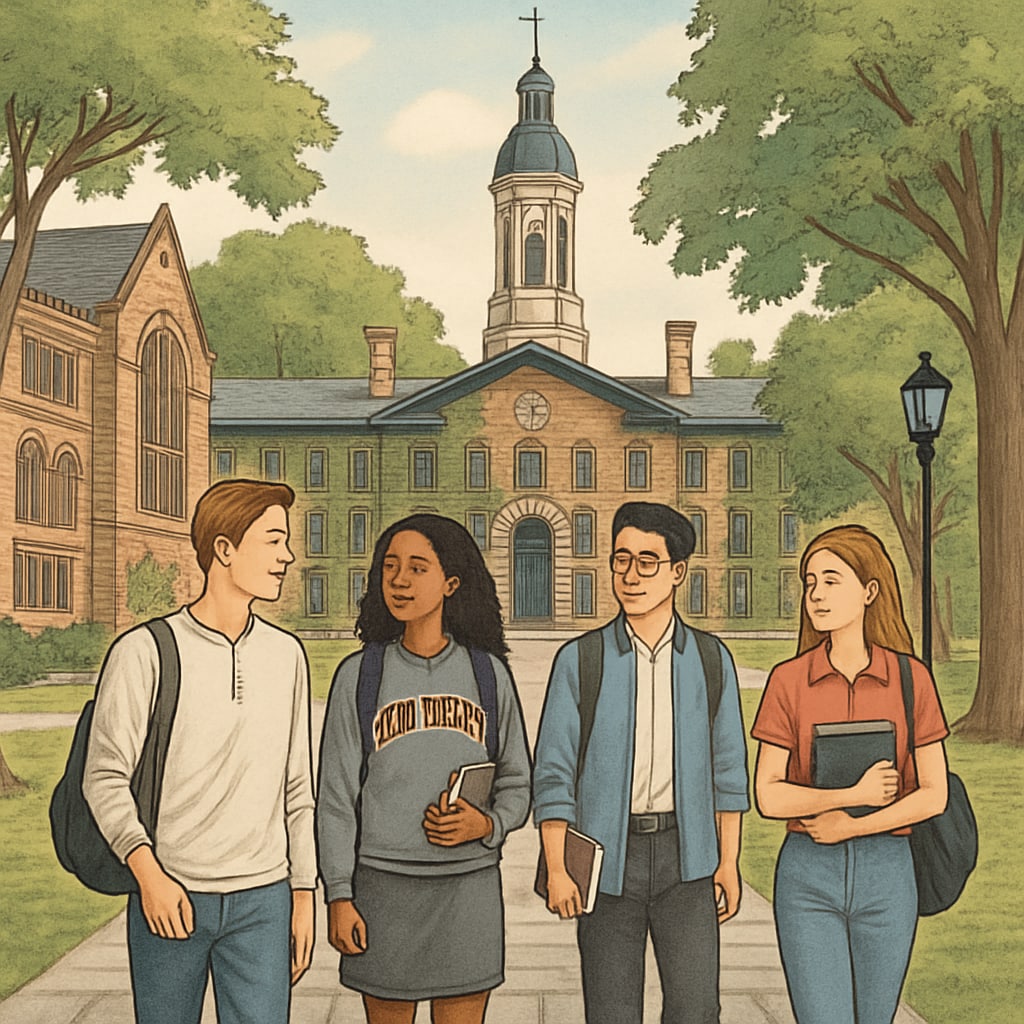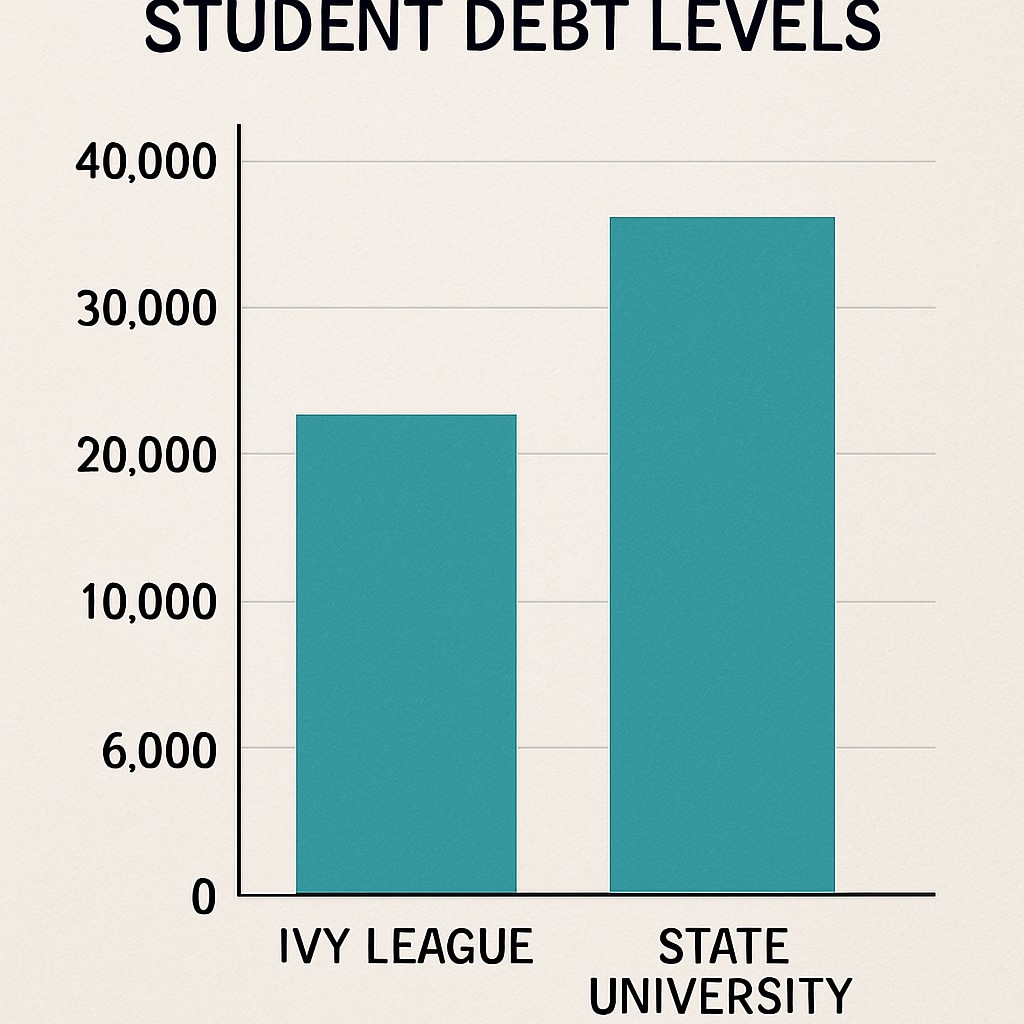In today’s competitive world, Ivy League schools like Princeton have become synonymous with excellence, prestige, and success. However, are we overestimating the value of these elite institutions? This article dives into the myths surrounding the Ivy League, explores the real worth of their reputation, and calls for students and parents to rethink the true purpose of education.
Why the Ivy League Dominates the Public Perception
For decades, the Ivy League has represented the pinnacle of academic achievement. Schools like Princeton, Harvard, and Yale are celebrated not only for their rigorous curricula but also for the doors they seem to open in the job market. Their alumni networks are extensive, their faculty are often world-renowned, and their campuses exude a sense of history and tradition. However, this dominance in public perception might not be entirely justified in today’s educational and professional landscape.
One of the main reasons for their perceived superiority is their exclusivity. Acceptance rates at Ivy League schools hover around 3-10%, creating a sense of scarcity and desirability. Additionally, high rankings in publications like U.S. News & World Report reinforce their image as the best of the best. However, are these metrics truly reflective of the education provided or just a product of clever branding?

Examining the Real Value of Ivy League Schools
While Ivy League schools undoubtedly offer world-class resources and opportunities, their value is often overstated. A growing body of research suggests that the prestige of an institution is not the sole determinant of a student’s future success. For example, a study by economists Alan Krueger and Stacy Dale found that students who were admitted to Ivy League schools but chose to attend less prestigious institutions still achieved comparable levels of success in their careers. This suggests that personal ambition, networking skills, and resilience often play a more significant role than the name on a diploma.
Moreover, the intense focus on attending an Ivy League school can overshadow the importance of finding the right fit for a student. Smaller liberal arts colleges, state universities, and even community colleges often provide tailored experiences and excellent education at a fraction of the cost. In an era where student debt is reaching alarming levels, reconsidering the necessity of a “brand name” education is more critical than ever.

The Limitations of the Ivy League Model
Despite their many advantages, Ivy League schools are not without limitations. One criticism lies in their lack of diversity—not just in terms of race and socioeconomic background but also in terms of thought. A 2019 report from The New York Times highlighted how many Ivy League schools still struggle to attract students from lower-income households despite financial aid initiatives. This creates an environment where privilege is often perpetuated rather than disrupted.
Additionally, the pressure-cooker environment of these institutions can lead to significant mental health challenges. Students at Ivy League schools report higher rates of stress, anxiety, and depression compared to their peers at other universities. The relentless pursuit of perfection, coupled with the fear of failure, can take a toll on students’ well-being, raising questions about whether the prestige is worth the cost.
Rethinking the Purpose of Higher Education
Ultimately, the obsession with Ivy League institutions distracts from the broader question: What is the true purpose of education? Is it merely to secure a high-paying job, or is it to foster critical thinking, creativity, and a lifelong love of learning? By focusing so heavily on the Ivy League, we risk devaluing other institutions that provide equally transformative experiences.
Parents and students must move beyond the “prestige trap” and evaluate schools based on their alignment with individual goals, values, and interests. Factors such as faculty engagement, class size, campus culture, and financial feasibility should weigh more heavily than brand recognition alone. As the job market evolves, skills like adaptability, collaboration, and emotional intelligence are becoming increasingly important—qualities that are not exclusive to Ivy League graduates.
In conclusion, while schools like Princeton and their Ivy League counterparts undoubtedly offer exceptional opportunities, their value is not universal or absolute. It’s time to demystify the Ivy League and embrace a more holistic view of education that prioritizes personal growth and lifelong success over societal prestige.
Readability guidance: This article uses concise paragraphs, clear transitions, and active voice to maintain reader engagement. It balances data-driven arguments with relatable examples, ensuring accessibility for a broad audience.


